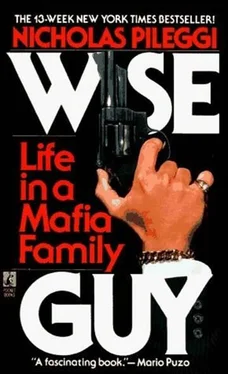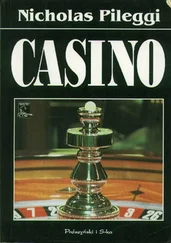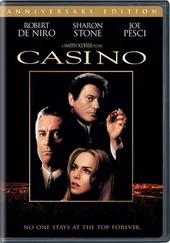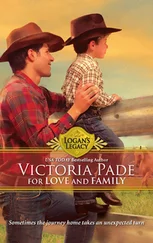The men at the cabstand were not like anyone else from the neighborhood. They wore silk suits in the morning and would drape the fenders of their cars with handkerchiefs before leaning back for a talk. He had watched them double-park their cars and never get tickets, even when they parked smack in front of a fire hydrant. In the winter he had seen the city's sanitation trucks plow the snow from the cabstand's parking lot before getting around to cleaning the school yard and hospital grounds. In the summer he could hear the noisy all-night card games, and he knew that no one-not even Mr. Mancuso, who lived down the block and groused about everything- would dare to complain. And the men at the cabstand were rich. They flashed wads of twenty-dollar bills as round as softballs and they sported diamond pinky rings the size of walnuts. The sight of all that wealth, and power, and girth was intoxicating.
At first Henry's parents were delighted that their energetic young son had found a job just across the street. Henry's father, Henry Hill Sr., a hardworking construction company electrician, always felt youngsters should work and learn the value of the money they were forever demanding. He had seven children to support on an electrical worker's salary, so any additional income was welcome. Since he was twelve years old, when he had come to the United States from Ireland shortly after his own father died, Henry Hill Sr. had had to support his mother and three younger brothers. It was work at an early age, he insisted, that taught young people the value of money. American youngsters, unlike the children of his native Ireland, seemed to dawdle about in their adolescence much longer than necessary.
Henry's mother, Carmela Costa Hill, was also delighted that her son had found a job nearby but for different reasons. First, she knew that her son's job would please his father. Second, she hoped that the after-school job might get her feisty young son out of the house long enough to keep him from bickering incessantly with his sisters. Also, with young Henry working, she would have more time to spend with Michael, her youngest son, who had been born with a spinal defect and was confined to either his bed or a wheelchair. Carmela Hill was further pleased-almost ecstatic, really-when she found that the Varios, the family who owned the cabstand, came from the same part of Sicily where she had been born. Carmela Costa had been brought to the United States as a small child, and she had married the tall, handsome, black-haired young Irish lad she had met in the neighborhood at the age of seventeen, but she never lost her ties to the country of her birth. She always maintained a Sicilian kitchen, for instance, making her own pasta and introducing her young husband to anchovy sauce and calamari after throwing out his catsup bottle. She still believed in the religious powers of certain western Sicilian saints, such as Santa Pantaleone, the patron saint of toothaches. And like many members of immigrant groups, she felt that people with ties to her old country somehow had ties with her. The idea of her son's getting his first job with paesani was the answer to Carmela's prayers.
It wasn't too long, however, before Henry's parents began to change their minds about their son's after-school job. After the first couple of months they found that what had started out as a part-tune job for their son had become a full-time compulsion. Henry junior was always at the cabstand. If his mother had an errand for him to run, he was at the cabstand. He was at the cabstand in the morning before going to school and he was at the cabstand in the afternoon when school let out. His father asked about his homework. "I do it at the cabstand," he said. His mother noticed that he was no longer playing with youngsters his own age. "We play at the cabstand," he said.
"My father was always angry. He was born angry. He was angry that he had to work so hard for next to nothing. Electricians, even union electricians, didn't earn much in those days. He was angry that the three-bedroom house was so noisy, with my four sisters and two brothers and me. He used to scream that all he wanted was peace and quiet, but by then we'd all be like mice and he'd be the only one screaming and yelling and banging dishes against the wall. He was angry that my brother Michael should have been born paralyzed from the waist down. But mostly he was angry about me hanging around the cabstand. 'They're bums!' he used to scream. 'You're gonna get in trouble!' he'd yell. But I'd just pretend I didn't know what he was talking about and say that all I was doing was running errands after school instead of running bets, and I'd swear that I was going to school when I hadn't been near the place in weeks. But he never bought it. He knew what really went on at the cabstand, and every once in a while, usually after he got his load on, I'd have to take a beating. But by then I didn't care. Everybody has to take a beating sometime."
Back in 1955 the Euclid Avenue Taxicab and Limousine Service in the Brownsville-East New York section of Brooklyn was more than just a dispatch center for neighborhood cabs. It was a gathering place for horseplayers, lawyers, bookies, handicappers, ex-jockeys, parole violators, construction workers, union officials, local politicians, truck drivers, bookmakers, policy runners, bail bondsmen, out-of-work waiters, loan sharks, off-duty cops, and even a couple of retired hit men from the old Murder Incorporated days. It was also the unofficial headquarters for Paul Vario, a rising star in one of the city's five organized-crime families and the man who ran most of the rackets in the area at the time. Vario had been in and out of jail all his life. In 1921, at the age of eleven, he had served a seven-month stretch for truancy, and over the years he had been arrested for loan-sharking, burglary, tax evasion, bribery, bookmaking, contempt, and assorted assaults and misdemeanors. As he got older and more powerful, most of the charges brought against him were dismissed, either because witnesses failed to appear or because very generous judges chose to fine rather than jail him. (Brooklyn Supreme Court Judge Dominic Rinaldi, for instance, once fined him $250 on bribery and conspiracy charges that could have sent him away for fifteen years.) Vario tried to maintain a modest amount of decorum in a neighborhood known for mayhem. He abhorred unnecessary violence (the kind he hadn't ordered), mainly because it was bad for business. Bodies deposited haphazardly on the streets always made trouble and annoyed the police, who at that time could generally be relied upon to be reasonably complacent about most mob matters.
Paul Vario was a large man, standing six feet tall and weighing over 240 pounds, and appeared even larger than he was. He had the thick arms and chest of a sumo wrestler and moved in the lumbering manner of a big man who knew that people and events would wait for him. He was impervious to fear, impossible to surprise. If a car backfired or someone called his name, Paul Vario's head would turn, but slowly. He seemed invulnerable. Deliberate. He exuded the sort of lethargy that sometimes accompanies absolute power. It wasn't that Vario couldn't move swiftly if he wanted to. Henry had once seen him grab a sawed-off baseball bat from his car and chase a nimbler man up five flights of stairs to collect a loan-shark debt. But usually Vario was reluctant to exert himself. At twelve Henry began running Paul Vario's errands. Soon he was getting Vario his Chesterfield cigarettes and coffee-black, no cream, no sugar- and delivering his messages. Henry got in and out of Paulie's black Impala two dozen times a day when they made their rounds of meetings throughout the city. While Vario waited behind the wheel Henry would bring supplicants and peers to the car for their conversations.
Читать дальше












